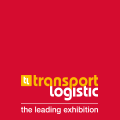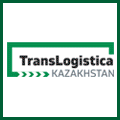
The European Parliament has advanced the CountEmissionsEU proposal, setting the stage for trilogue negotiations, recognising road transport needs, especially for SMEs.
IRU welcomes the joint vote by the European Parliament’s Committee on Environment, Public Health and Food Safety (ENVI) and Committee on Transport and Tourism (TRAN) to initiate trilogue negotiations on the CountEmissionsEU proposal. This decision marks a pivotal step towards establishing a common framework for monitoring and reporting greenhouse gas (GHG) emissions across passenger and goods transport in the EU.
IRU EU Director Raluca Marian said, “The road transport sector needs robust tools to support decarbonisation effectively. CountEmissionsEU is a significant step forward, as it can harmonise reporting and introduce consistency, while considering a fair, long-awaited well-to-wheel approach.”
“We are grateful to the European Parliament for recognising the realities of small enterprises and the specific nature of road transport, which relies significantly on subcontracting. It is vital to ensure that this regulation also supports their journey towards a greener future,” she added.
Essential decarbonisation tool
Presented by the European Commission as part of the “Greening Freight Package”, the CountEmissionsEU proposal aims to help the transport industry collect accurate, comparable emissions data and use it to further decarbonise operations. By aligning with the ISO 14083 standard, the regulation will enhance transparency and support the sector’s efforts to measure decarbonisation progress.
The ENVI and TRAN committees’ votes have paved the way for trilogue negotiations between the European Parliament, the Commission and the Council, which adopted its position on the proposal in December 2023.
Supporting road transport SMEs
IRU is encouraged by the European Parliament’s acknowledgement of the commercial road transport sector’s unique characteristics, particularly the challenges faced by SMEs. In the EU, most road transport operators are SMEs: 89% of truck, 82% of bus and coach, and 99% of taxi operators have less than ten employees.
The European Parliament has introduced important clarifications to the proposal, including:
- Allowing subcontracted SMEs to use secondary data for reporting purposes
- Exempting SMEs from data verification requirements
- Setting clear deadlines for establishing EU databases to support implementation
Looking ahead
IRU calls on co-legislators to ensure the regulation is practical, easily accessible and beneficial for all industry stakeholders. The EU framework for monitoring and reporting GHG emissions in transport must be clear and ensure high levels of harmonisation across the EU.
Furthermore, by addressing the needs of SMEs, the regulation can bring about meaningful progress in decarbonisation while minimising administrative burdens for smaller operators.
IRU remains committed to engaging with policymakers and stakeholders to shape effective and fair regulations that drive sustainable growth in the road transport sector.
Source, IRU



.jpg)








